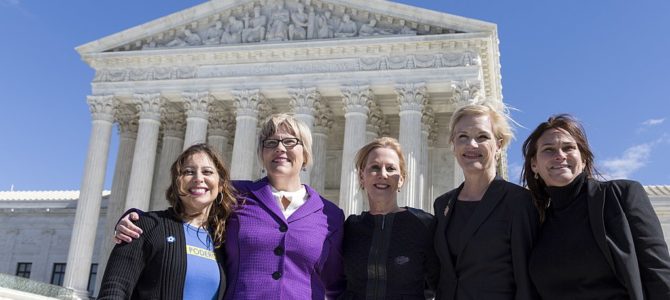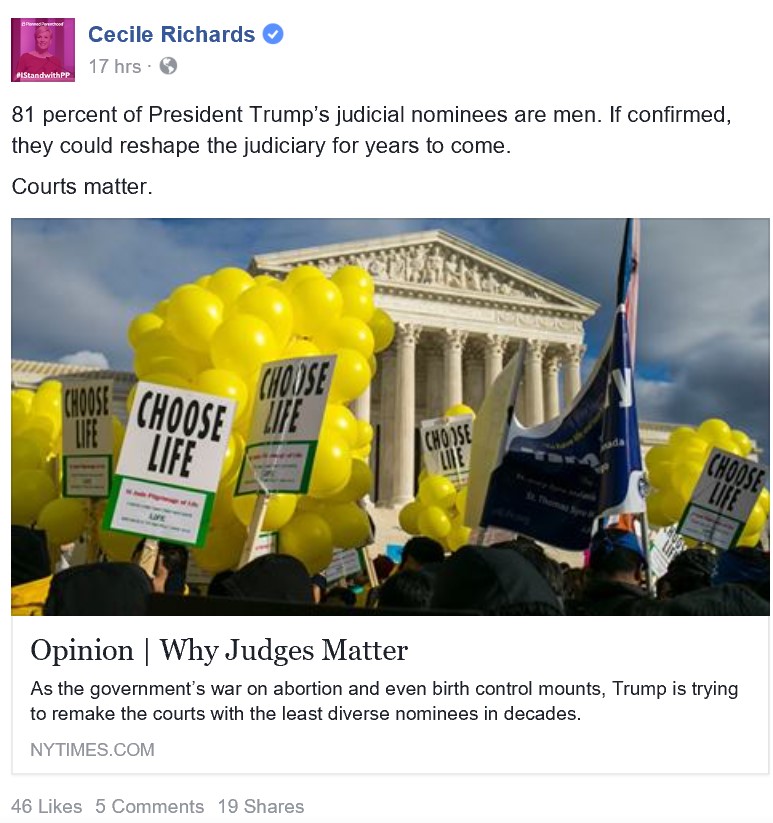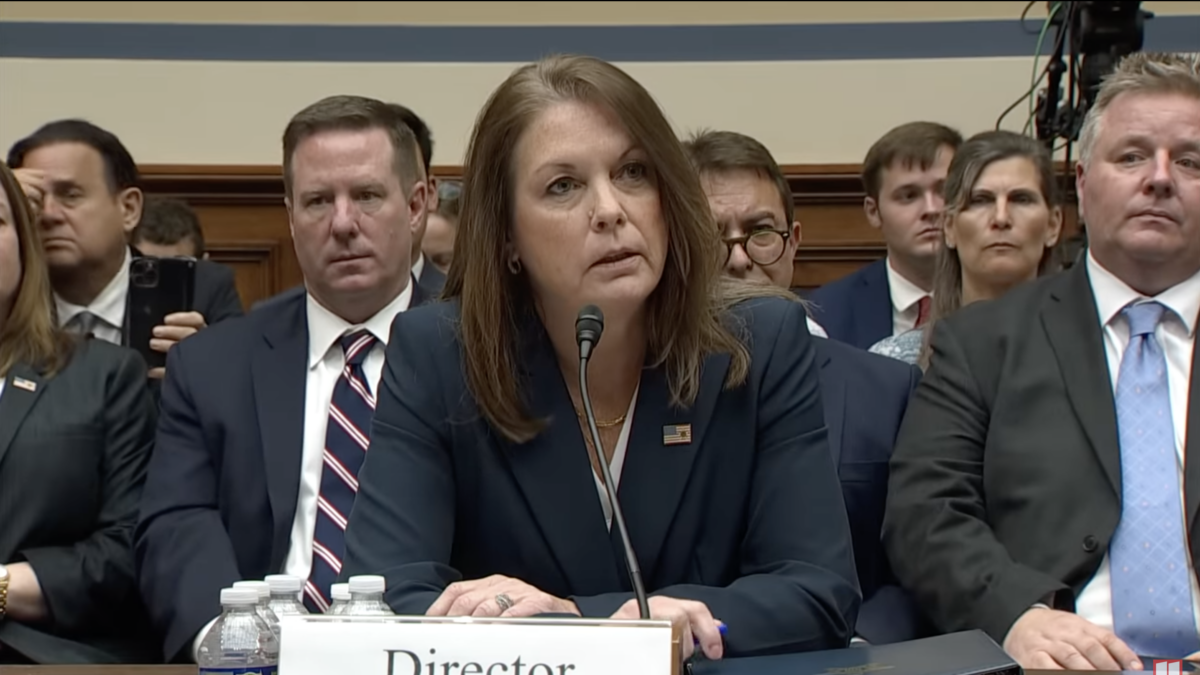
It’s the judges, stupid. Cloaked beneath claims of sexism, that message headlined the year-end social media feed of Cecile Richards, president of the nation’s largest abortion provider Planned Parenthood: “81 percent of President Trump’s judicial nominees are men. If confirmed, they could reshape the judiciary for years to come. Courts matter.”

Richards is right. Courts matter. They matter because liberal judges long ago stopped interpreting the law and started inventing the law. They matter because activist judges ignore clear constitutional mandates while conjuring up imaginary constitutional rights. They matter because liberal judges no longer judge—they pontificate according to their political proclivities. It shouldn’t be this way in a constitutional republic. But it is.
We’d Rather Do Identity Politics Than Debate the Issues
Liberals found this framework favorable, until they didn’t, which is to say when they discovered President Trump intended to keep his campaign promise of appointing men and women in the mold of the late Supreme Court Justice Antonin Scalia, who was renowned for sticking to the law instead of making law fit his personal politics.
“Women, what women?” they scoff, finding sexism a sturdier basis of attack than judicial philosophy—or at least more easily translated into a midterm campaign theme: The War on Women II. But Richards cares nothing about the sex of the judicial nominees. It’s all about judicial philosophy. Natch. It’s all about abortion.
Just one month ago, Richards penned an op-ed for The Hill targeting Seventh Circuit Judge Amy Coney Barrett. Why target Barrett if Richard’s complaint is the lack of female nominees to the federal bench? Well, Richards finds Barrett problematic because Barrett “has been a vocal opponent of Roe v. Wade, and she has publicly said that employers should be able to deny their employees access to birth control.”
What Richards wants, then, is a double standard. Judges get props for being women only when they agree with Richards’ politics. She also wants to professionally delegitimize judges based on biology rather than qualifications when she doesn’t like how that judge tends to rule. Heads she wins, tails her opponents lose.
Abortion Pushers’ Legal and Moral Claims Have No Merit
Linda Greenhouse, whose New York Times article “Why Judges Matter” prompted Richards’ tweet, likewise played the sex card, but with more finesse. She led with her true concern—abortion: “The Trump Administration’s increasing bizarre war on abortion continues as immigration officials keep trying to block access to abortion for pregnant undocumented teenagers in their custody.” But with “no law on its side,” federal district court judge Tanya Chutkan ordered the government “to allow two immigrant teenagers to exercise their right to terminate their pregnancies.”
Greenhouse then dangled the question, “Does the fact that [Chutkan is] a woman make [her] more sensitive to the plaintiffs’ claims?” Then down dropped the sex card. “I don’t know,” Greenhouse mused, “but I do know that 81 percent of President Trump’s judicial nominees are men…”
Greenhouse’s concern over the male-female judiciary balance is a farce, just as is her claim that the government has “no law on its side” for refusing to facilitate abortions for illegal aliens who are children. Three federal appellate judges disagreed with Chutkan’s order, including woman judge Karen LeCraft Henderson. Henderson’s dissent persuasively argues that under Supreme Court precedent, an alien minor detained at the border does not have a constitutional right to an elective abortion.
The Supreme Court, however, never had the chance to resolve the issue because the American Civil Liberties Union, which represented the girl, misled the government and arranged for an early-morning abortion to thwart an appeal. On Friday, the Supreme Court will discuss whether the ACLU’s conduct merits vacating the lower-court decision, and possibly even sanctions for playing dirty.
Abortion Pushers Are Waging the Real War on Women
Greenhouse does not limit her op-ed to abortion, though. Like Richards, Greenhouse expands the supposed battlefield to birth control. But just as their focus on the male-female ratio is a charade, so too is their “access to birth control” canard. There is no threat to birth control access. Yet to further the War on Women II narrative, the sisters-in-arms raise the specter of gavel-waving men ready to wrest away contraceptives.
Here’s Greenhouse: “But the administration’s war on birth control came to a grinding halt the other day. In a little-noticed ruling, a federal district judge in Philadelphia issued a temporary injunction against a new policy that lets employers refuse to cover contraception in their employees’ insurance plans if they have either religious objections to birth control or ‘sincerely held moral convictions’ against it.”
So “the war on birth control” is actually the Trump administration’s allowance of religious and moral exemptions to Obamacare’s contraceptive mandate, which does absolutely nothing to prevent women from buying any kind of birth control. These gals know what they’re doing. It’s much easier to scare an electorate to the polls with tales of a bogeyman behind every bench, poised to banish birth control from the shores of America, than to broadcast the sad truth: There are no lurking monsters, just modest nuns—the Little Sisters of the Poor—who seek nothing more than to be left alone to fulfill their calling to care for the elderly poor.
Apparently, those women don’t matter to Greenhouse. They also didn’t matter to the Philadelphia federal judge whose womanhood Greenhouse also touted, Judge Wendy Beetlestone. Before barring the government from enforcing the religious and moral exemptions, Beetlestone banned the Little Sisters from the case. The Little Sisters promptly appealed, and the Third Circuit recently agreed to hear the case on an expedited basis.
People Hire Women to Deny Them Birth Control Subsidies?
Yet to Greenhouse, Obama appointee Beetlestone is the one who put politics to the side and crafted a “careful, lawyerly opinion.” Here’s a sampling of Judge Beetlestone’s lawyerly reasoning: “A simple hypothetical illustrates the insidious effect of the Moral Exemption Rule. It would allow an employer with a sincerely held moral conviction that women do not have a place in the workplace to simply stop providing contraceptive coverage. And, it may do so in an effort to impose its normative construct regarding a woman’s place in the world on its workforce, confident that it would find solid support for that decision in the Moral Exemption Rule.”
Beetlestone’s “simple” hypothetical would have us believe employers exist that are willing to violate their moral precepts by hiring women but then claiming a moral objection to providing insurance sponsorship of contraceptives because birth control allows the same women to continue in their employ, which of course the women could still do even if they became pregnant and gave birth. The only way Beetlestone could have crafted a more ridiculous caricature of those benefitting from the moral and religious exemptions would be if she named the hypothetical woman Offred!
Beetlestone’s “careful, lawyerly” opinion contained several significant errors, more of which I highlighted here. Greenhouse’s thinking is similarly facile. Greenhouse believes (or pretends to believe) “that since no one is forcing these employers to use birth control themselves, their moral objection has to be to their employees’ using it.”
This logic ignores the strength of the Little Sisters’ objection to paying for insurance that sponsors birth control and abortifacients. The good sisters’ objection is their moral complicity, not employees’ use of contraceptives or abortifacients.
Yes, the Little Sisters’ insurance creates contraceptive coverage, something easily understood by contrasting two hypothetical employees of the Little Sisters: Susie, who elects health insurance coverage, and Mary who, following the repeal of the individual mandate, decides to remain uninsured. Susie’s participation in the Little Sisters’ health insurance plan entitles her to insurance-subsidized birth control (including some abortifacients) and sterilization, while Mary does not qualify for these freebies.
It will be months, if not years, before courts conclusively rule on challenges to the religious and moral exemptions. But no matter the outcome, the case has served its purpose: framing the fight over the judiciary as a fight for women’s rights and against sexism. And accusations of sexism sell in an election year, maybe even better than the body parts from aborted babies Planned Parenthood affiliates have illegally brokered. That reminds me of another reason Richards cares about the courts—the Trump administration’s newly launched investigation into Planned Parenthood’s pay-for-baby-parts moneymaker.









